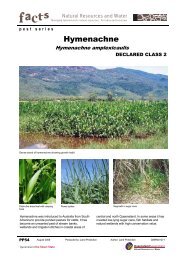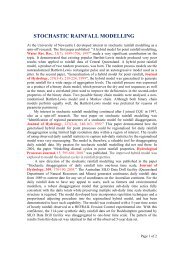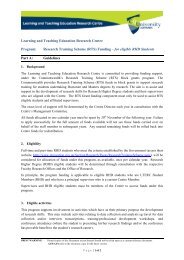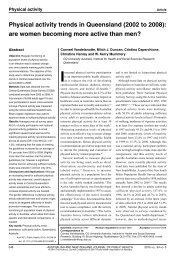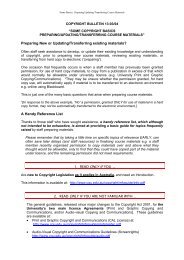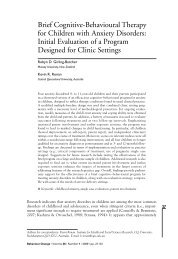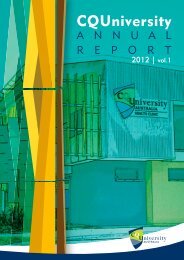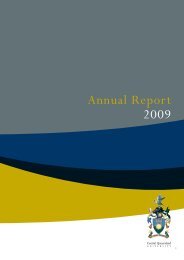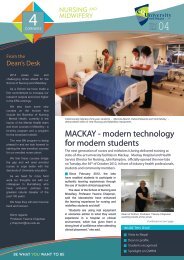2007 Annual Report - Central Queensland University
2007 Annual Report - Central Queensland University
2007 Annual Report - Central Queensland University
You also want an ePaper? Increase the reach of your titles
YUMPU automatically turns print PDFs into web optimized ePapers that Google loves.
<strong>2007</strong> Centre for Plant & Water Science <strong>Annual</strong> <strong>Report</strong>THE EFFICACY OF COMPOST TEA IN ORGANIC PRODUCTIONCompost teas are claimed to have beneficial effects on plant production. We introduced somecontrolled-condition experiments to explore these claims. Compost tea was produced fromcommercially composted cattle paunch material mixed with water at the ratio of 1:10 w/v, withadded molasses and kelp, for 24 hours, with and without aeration. The tea solution containedapproximately 2 mg/L NH 4 + , 10 mg/L PO 4-and 1 g/L K + . The bacterial and fungal populationswere also assessed. The tea was tested for (a) its ability to improve plant nutrition through itsmicrobial action, (b) soil mineralization and direct nutrient supply, and (c) its ability to offerbio-protection against a fungal pathogen (Fusarium oxysporum f. sp. lycopersici).Results are available for the following factorial experiments (a) in a glasshouse using tomato ontwo soil types with aerated (ACT) and non-aerated compost tea (NCT) and with chemicalfertilizer and a no-fertilizer control, (b) using tomato under two sets of growth conditions withsterile and non-sterile ACT and NCT, grown in a 1:1 v/v sand–organic substrate mix in acompletely randomized design in a growth chamber, (c) hydroponics tomato plants treated withsterilized and non-sterilized ACT and NCT, and inoculated with or without pathogen.In experiment (a), shoot biomass and fruit yield were improved in ACT, NCT and chemicaltreatments over the control but no difference existed between the three amended treatments.Inexperiment (b), there was significant difference in shoot biomass of tomato in both sterilizedand non-sterilized compost teas when compared to non-amended control, however, nodifference was found between compost tea treatments. This result is consistent with a nutrientbenefit to the crop from the treatments. In experiment (c), both sterilized and non-sterilizedaerated compost teas reduced disease severity significantly when compared to the watercontrol.A parallel laboratory experiment to experiment (c) was conducted with F. oxysporumgrown in-vitro to determine the efficacy of different compost teas and results indicated thatthere was no obvious effect of CTs except for non-sterilized ACT, 100 ml/L and non-sterilizedNCT, 100 ml/L. However, statistical analysis showed that non-sterilized ACT, 100 ml/L had asignificant effect on the suppression of mycelial growth rate of F. oxysporum (P




